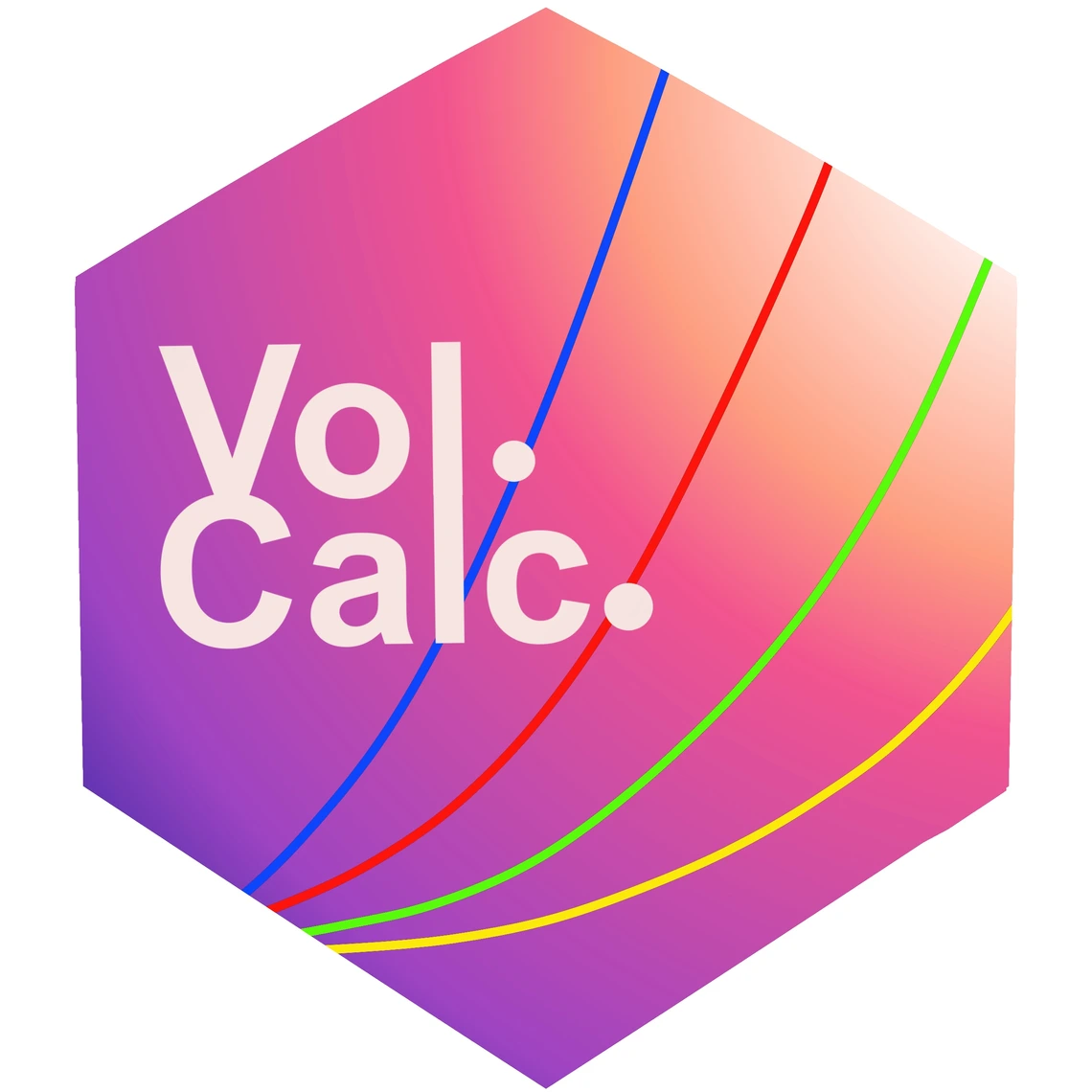volcalc v2.1.0 released along with publication in Frontiers in Microbiology

volcalc is a chemoinformatics R package that automates estimation of volatility of chemicals. We built the original version in collaboration with Dr. Laura Meredith in the School of Natural Resources and the Environment as a Data Science Incubator. Since the incubator, we’ve gotten additional funding to improve and extend its capabilities, and have worked on a manuscript describing the package. Today we’re excited to announce both the release of volcalc version 2.1.0 and the publication of the associated paper in Frontiers in Microbiology (Meredith et al. 2023)! The new version of volcalc includes a lot of improvements and new features, which we’ll outline briefly below. Check out the full changelog for more details on this release and check out the paper for more details about how volcalc works and how it can be used!
User interface changes
Previously, calculating volatility of compounds had to start with downloading a .mol file for that compound. Now the main function calc_vol() also accepts SMILES, a simplified text representation of chemical structures, which simplifies workflows when SMILES strings are available. Whether compounds are categorized as low, moderate, or high volatility depends on their environment (e.g. soil or air) and now users can select among a few possible environments in calc_vol().
Improvements in accuracy
volcalc implements so-called “group contribution methods” where the counts of functional groups are multiplied by coefficients to determine volatility. Version 2.1.0 includes the addition of fourteen functional groups that were previously not captured. get_fx_groups() now outputs counts for all but one of the functional groups outlined in Pankow & Asher (2008).
Improvements in speed
Batch downloads of .mol files from the KEGG database using get_mol_keg() are now much faster as compounds are now queried up to 10 at a time.
Vignettes
There are now two vignettes included in the package: one on getting started with volcalc, and one on downloading .mol files from KEGG.

